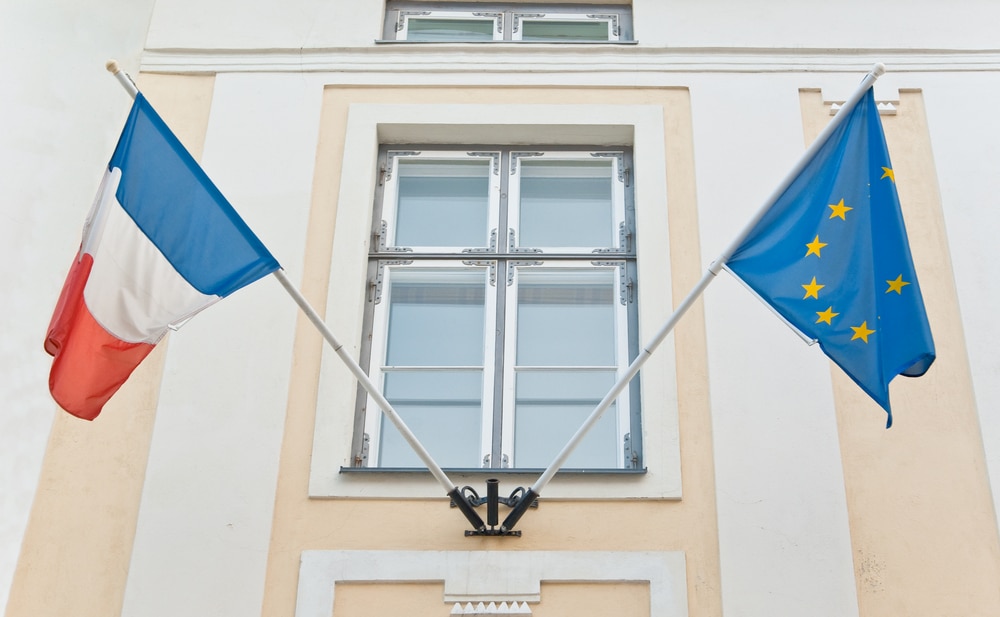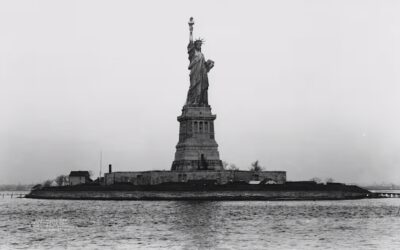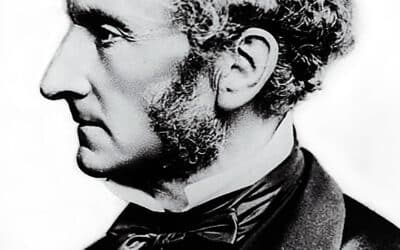Today, governments in Europe have a broad answer to the question, “What is the role of government?” A culture of interventionism incrusted over many years convinced European governments that everything can be solved with more money, more bureaucrats, and more plans. Needleless to say, with this mindset governments always ask and obtain more power and it’s never assumed that they could become too large. No longer is the government managing the affairs of the State, because all of life is now an affair of the State. Governments have plans about what to do with the life of their citizens, and opportunely ignore that individuals are planning for their own futures themselves.
At the level of the European Union (EU), bureaucrats, controlling an administrative juggernaut out of reach from national citizens, quietly continue to design new regulations aimed at transforming European societies and every aspect of the life of the “European citizens.” To that end, to what was once the Europe of free trade was added the Europe of standards, regulations, barriers to entry and lobbying, the Europe of common agricultural policy and its quotas, and the Europe of tax harmonization from above. These new regulations are commonly used by governments to strengthen their control over the life of their citizens using as a shelter the need to integrate national laws within the EU regulatory framework.
The institution of the European Union was certainly influenced by how notions of government and its duties regarding the rights and freedom of its citizens evolved over time. Major differences exist on these matters between the United Kingdom, now a former EU member, and the continental European powers. This divergent viewpoint emerges from two ideas of liberty; the modern liberty, as defended in the UK in the nineteenth century, and an old vision of liberty, promoted almost simultaneously by French revolutionaries.
To clarify what makes those two ideas of liberty different—if not literally antagonist—it is worth remembering the political and philosophical context at the end of the eighteenth century and the first half of the nineteenth century. At that time, in many places around Europe, people were looking to escape from absolutism and tyrannical forms of government. British philosophers were thinking about how to move away from the tyranny of absolute monarchy so that rights of citizen could be protected, persevered, and promoted. They came with the modern notion of liberty whose cornerstones were individual freedom and private property rights. The concept of rights were defined such that:
- Rights originate in individuals and nothing constrains them but the rights of other individuals;
- Every individual has the right to take any action that does not interfere with the rights of another individual;
- Individual rights may only be transferred by the individual’s right of consent;
Modern liberty, being all about the rights of the individuals, had a tremendous impact on how government and its duties were defined. Governments should exist to protect the rights of the individual and act as a servant of the people who consent to be governed. Moreover, the moral rights of government can never be greater than the moral rights of the individuals who delegated to government its power.
Philosophers were always concerned by the fact that government could always grow too much and, while taking more power, could become a threat to the people’s rights which it aimed to protect. A special emphasis was put on the role of government to protect the property rights of citizens. Indeed, the property rights are considered a necessary precondition for economic freedom, as they provide individuals the ability to choose what to do with what they own (including themselves).
Later on, America’s Founding Fathers based their new constitution on the concept of modern liberty and how to establish a government whose main duty would be to protect individual rights and freedom. John Adams said, “Property is surely a right of mankind as real as liberty…The moment the idea is admitted into society that property is not as sacred as the laws of God, and that there is not a force of law and public justice to protect it, anarchy and tyranny commence.” This focus on the primacy of defending property rights is reflected by what tops the list of foundational concerns for every government. National defense is to protect citizens and their property from foreigners. Police, courts, and jails are to protect citizens and their property from their neighbor’s predations.
In an 1819 essay, political theorist Benjamin Constant discussed “The Liberty of Ancients Compared with that of Moderns.” The liberty of the ancient world “consisted in an active and constant participation in collective power.” This was the idea of “political liberty” in a people’s state that first arose in the ancient Greek democracies and was cherished in the Roman Republic. In these classical civilizations, Constant writes:
“…the individual, almost always sovereign in public affairs, was a slave in all his private relations. As a citizen, he decided on peace and war; as a private individual, he was constrained, watched and repressed in all his movements; as a member of the collective body, he interrogated, dismissed, condemned, beggared, exiled, or sentenced to death his magistrates and superiors; as a subject of the collective body he could himself be deprived of his status, stripped of his privileges, banished, put to death, by the discretionary will of the whole to which he belonged.”
At the end of the eighteenth century, instead of supporting modern liberty, the French revolutionaries, also looking to move away from the system of absolute monarchy, tried to resurrect an ancient system that “demands that the citizens should be entirely subjected in order for the nation to be sovereign, and that the individual should be enslaved for the people to be free.” This French revolutionary idea was that the individual’s life belongs not to him but to the group. This has blossomed over time into a mindset known as collectivism. The individual is only important to the degree he or she benefits society, if they serve the group’s collective purpose. People only have the rights that the state permits them to enjoy, provided they adhere to the rule of law as determined by the state. This gives a collectivist concept of rights:
- Rights originate from the society and are constrained by what contributes to the greater good of the society;
- Individuals exist to serve society and not themselves;
In that context, the primary role of government is not the protection of individual rights as defined by the concept of individual freedom. In the collectivist viewpoint, every individual has rights which are determined to contribute to the greater good, as determined by the state, or more accurately, those in control of the state. Of course, private property is restricted—assuming it exists at all. In this type of society, the individual’s production exists to be distributed as determined by the government and not as determined by the individual. It is the role of government to distribute wealth produced by the workers so that all share equally in the wealth produced. The French Revolution and its concept of questioning individual liberty and property rights is the beginning of the rise of socialism, Marxism, and other theories of collectivist utopia where the state is seen as the master ruling for the greater good. This ideology has shaped national institutions, people’s psychology, and still has many ardent defenders.
In the United Kingdom, the ideas of centralized power and interventionism are still viewed with a sense of skepticism compared to the European mainland. That’s one of the reasons why the growing EU bureaucracy was seen as an increasing threat to their national affairs. The late British Prime Minister Margaret Thatcher said, “Let me give you my vision. A man’s right to work as he will to spend what he earns, to own property, to have the state as servant and not as master; these are the British inheritance. They are the essence of a free economy. And on that freedom all our others depend.”
On the other hand, Georges Pompidou, a former French president, emphasized in his political testimony the following (translated):
“In the economic field, our administration is the daughter of the Vichy government…The rage for control was born of the shortage of the years 1940-1944. Added to this, at the time, was the Maurrasian mistrust of the liberal economy. At the same time, the Resistance in its administrative and political form was imbued with the same distrust, starting from a different ideology but from analogous reactions. Since the end of the war, generations of civil servants have been trained in the spirit that the general interest is to be confused not only with the primacy of the state but with state interventionism and distrust of the private enterprise…We need a change of mind.”1(Georges Pompidou, le nœud gordien, 1974)
France was one of the core founders of the European Union, and it has influenced the political and institutional landscape of the EU from the beginning. This could help explain the evolution of the European project which has moved, especially during the last 25 years, towards a continent-spanning, technocratic entity micro-managing all aspects of people’s lives with a worrying lack of popular control or accountability.







